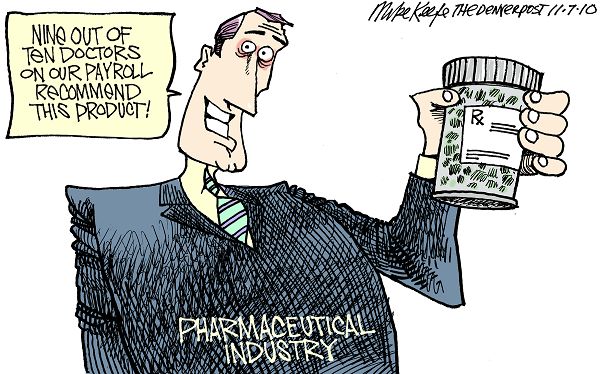 Amidst the cannabis legalization movement advocating for the medicinal benefits of cannabis, opponents turn to academic research to argue against policies which would make cannabis more accessible. But who are these opponents and what are their motives? Some speculate that these anti-cannabis scholars may have biased opinions due to their financial relationships with prescription drug companies.
Amidst the cannabis legalization movement advocating for the medicinal benefits of cannabis, opponents turn to academic research to argue against policies which would make cannabis more accessible. But who are these opponents and what are their motives? Some speculate that these anti-cannabis scholars may have biased opinions due to their financial relationships with prescription drug companies.
Columbia University psychiatry professor Dr. Herbert Kleber has warned against the dangers of cannabis and has been quoted in press articles arguing that cannabis is a gateway drug that can lead to harmful addiction and dependency. Kleber goes as far as to make claims that cannabis smoke is carcinogenic and can lead to an increase of respiratory problems. While it is easy to look at Klebers impressive credentials and take his opinions on the dangers of cannabis at face value, what needs to be looked at is his connection to pharmaceutical drug companies.
According to VICE journalist Lee Fang, Dr. Kleber is a paid consultant to leading pharmaceutical drug companies, including Purdue Pharma, Reckitt Benckiser and Alkermes. As new studies show the medicinal benefit of cannabis as a painkiller, researchers are advocating for cannabis use as an alternative to the opiate painkillers sold by prescription drug companies. Could it be that Klebers opposition to the use of cannabis is directly related to his financial ties to pharmaceutical drug companies?
 In a CNBC article Kleber states, “..any number of approved drugs can do what pot does, such as reduce nausea for those undergoing chemotherapy.” And what exactly are the ‘approved drugs’ Kleber could be referencing? Could he possibly be referring to the opiate painkillers produced by the drug companies he works for? Kleber goes on to say, “the more you make marijuana available, the more you’ll see its use in teenagers, and the more casualties you’re going to see.” This is an interesting statement when one considers that prescription opioids sold by drug companies are the most dangerous abused drug in the States, with 16,000 deaths linked annually to opioid addiction and overdose.
In a CNBC article Kleber states, “..any number of approved drugs can do what pot does, such as reduce nausea for those undergoing chemotherapy.” And what exactly are the ‘approved drugs’ Kleber could be referencing? Could he possibly be referring to the opiate painkillers produced by the drug companies he works for? Kleber goes on to say, “the more you make marijuana available, the more you’ll see its use in teenagers, and the more casualties you’re going to see.” This is an interesting statement when one considers that prescription opioids sold by drug companies are the most dangerous abused drug in the States, with 16,000 deaths linked annually to opioid addiction and overdose.
Yet, there is still a grand total of zero recorded deaths due to marijuana overdose. When one considers Keblers financial connection to the drug companies that may feel threatened by the natural medicinal benefits of cannabis, his political motivation for his anti-cannabis advocacy becomes more clear. It would seem that Kleber’s opinions on the dangers of making cannabis more widely available are motivated not by a desire for the health and safety of medicating individuals, but by an agenda to keep pharmaceutical drug sales up and eliminate the competition of medicinal cannabis as an alternative.
 Dr. Kleber is not the only cannabis opponent with financial ties to pharmaceutical drug companies. Dr. A. Eden Evins, an associate professor of psychiatry at Harvard Medical School and board member of the anti-marijuana advocacy group, Project SAM, was quoted by the Times saying, “When people can go to a ‘clinic’ or ‘cafe’ and buy pot, that creates the perception that it’s safe,”. As it turns out, Evins is a consultant for painkiller producing companies Pfizer and DLA Piper, receiving grant and research money from Envivo, GlaxoSmithKline and Pfizer.
Dr. Kleber is not the only cannabis opponent with financial ties to pharmaceutical drug companies. Dr. A. Eden Evins, an associate professor of psychiatry at Harvard Medical School and board member of the anti-marijuana advocacy group, Project SAM, was quoted by the Times saying, “When people can go to a ‘clinic’ or ‘cafe’ and buy pot, that creates the perception that it’s safe,”. As it turns out, Evins is a consultant for painkiller producing companies Pfizer and DLA Piper, receiving grant and research money from Envivo, GlaxoSmithKline and Pfizer.
Dr. Mark L. Kraus, board member to the American Society of Addiction Medicine, who submitted testimony against medical marijuana law in Connecticut in 2012, also served on the scientific advisory panel for Pfizer and Reckitt Benckiser. With all of these academics connected to prescription drug companies, it may be hard to tell whether the opinions they are pushing are motivated by truth, or by their ties to drug companies who fear loss of sales due to cannabis legalization.
These financial connections to leading prescription drug companies add weight to the argument that drug companies are a large force behind cannabis opposition. As we recognize the hidden financial ties between academics advocating for the prohibition and strict regulation of cannabis and large prescription drug companies, we begin to see that there is an anti-cannabis agenda being pushed by drug companies that has nothing to do with health and safety, and everything to do with keeping prescription drug sales up.









